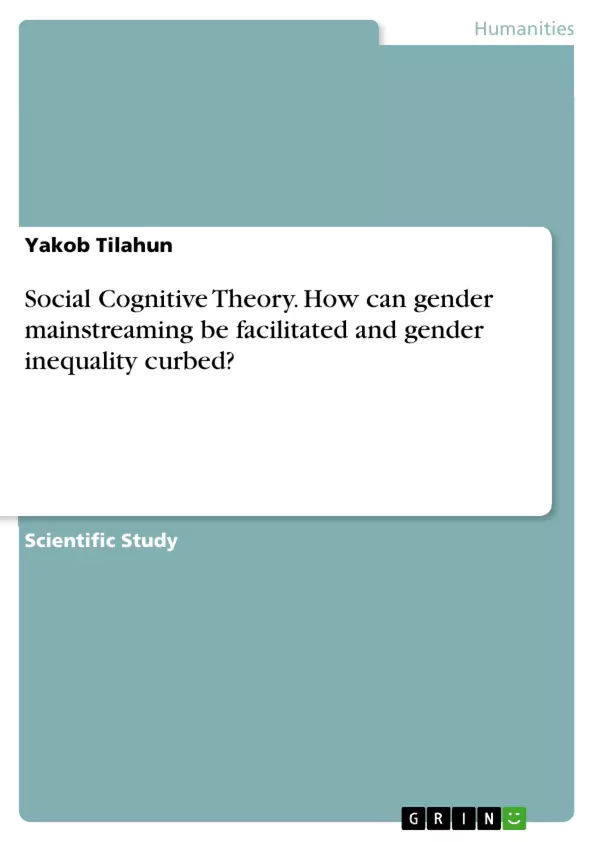The purpose of this paper is to emphasize the practical aspects of social psychological knowledge and be part of its applications in the field and organizational settings. From a variety of principles that guide social behavior and its individual responses, the paper is focusing on the social cognitive theoretical applications that effectively address the role of behavior, cognition, and environmental factors to the structuration of psychological well-being and competent performances of individuals in their day to day activities. The characteristics of psycho-social problems in the field and organizational settings have their own unique characteristics. Depending on different precipitating factors that contribute to vulnerabilities in such areas, the intervention approaches may need adjustments to work with the rules and regulations of field and organizational contexts. So it is not only the demands of social-psychological support that shapes the situation in practicing with existing problems but also the interest of the student in practice, the willingness of the host institutions, the availability of potential clients that are also being attached to the success of the practical approaches of any given theory. The major target for this practicum is the Women and youth directorate of the House of Federation secretariat from which the social-psychological problems can be potentially diagnosed in terms of theoretical foundations and related applications. More on this, the specific applications of the practicum also touch individual targets in the organization that has directly affected by the incompetence and psycho-social inefficacy.
Inhaltsverzeichnis (Table of Contents)
- Chapter One
- Introduction
- Background
- Area
- The Objectives of the practicum
- Targets
- Significance of the practicum
- Methodology
- Operational Definitions of Concepts
- Chapter Two
- Theoretical Framework and Its Linkage to the Practicum
- Fundamentals of Social Cognitive Theory
- Social Cognitive theory and Gender as a construct
- Gender Incompetence, perceived self-efficacy and women's career development
- Sources of self-efficacy
- Facilitating Gender mainstreaming in an organization and The Issue of Gender Equity
- Chapter Three
- Observation, Problem Identification and Intervention Process of the Practicum
- Women and Youth Directorate as a Target for Intervention
- Women Employees as a Target for Intervention
- Verbal/Social Persuasion as an Intervention Tool
- Expected Outcomes of the Intervention
- Observed Outcomes of the Interventions
- Ethical considerations in the practicum
- Limitations of the Intervention process
- Chapter Four
- Discussion and Conclusion
Zielsetzung und Themenschwerpunkte (Objectives and Key Themes)
This academic paper explores the application of Social Cognitive Theory to facilitate gender mainstreaming and address gender inequity and incompetence within the Women and Youth Directorate of the House of Federation Secretariat in Ethiopia. The practicum aims to promote women's empowerment by enhancing their self-efficacy and promoting gender equality within the organization.
- Social Cognitive Theory and Gender
- Gender Mainstreaming and Equity
- Perceived Self-Efficacy and Women's Career Development
- Intervention Strategies and Outcomes
- Ethical Considerations in Gender-Based Interventions
Zusammenfassung der Kapitel (Chapter Summaries)
Chapter One introduces the background and objectives of the practicum, outlining its significance in addressing gender issues within the Women and Youth Directorate. It also details the methodology employed, including the target population, sample, and instruments used to assess self-efficacy. Chapter Two delves into the theoretical framework of Social Cognitive Theory and its relevance to gender as a construct. It explores the concept of perceived self-efficacy and its impact on women's career development, examining the sources of self-efficacy and the importance of facilitating gender mainstreaming within organizations. Chapter Three focuses on the observation, problem identification, and intervention process of the practicum. It analyzes the target group of women employees and their perceived self-efficacy levels, discussing the intervention strategies implemented to enhance their problem-solving skills and overall confidence. The chapter also explores the expected and observed outcomes of the intervention, addressing ethical considerations and limitations of the process.
Schlüsselwörter (Keywords)
Social Cognitive Theory, gender mainstreaming, gender equity, perceived self-efficacy, women's career development, intervention strategies, ethical considerations, Ethiopian context, House of Federation Secretariat, Women and Youth Directorate.
Frequently Asked Questions
What is Social Cognitive Theory (SCT)?
SCT explains human behavior as a result of the dynamic interaction between personal factors (cognition), environmental influences, and behavior itself.
How can SCT facilitate gender mainstreaming?
By addressing perceived self-efficacy and using social persuasion, the theory helps individuals overcome gender-based incompetence and promotes institutional equity.
What is "perceived self-efficacy" in women's career development?
It refers to women's belief in their ability to perform tasks and manage their careers effectively, which is often hindered by social stereotypes.
What intervention tools were used in this practicum?
The practicum utilized verbal/social persuasion and problem-solving training to enhance the confidence and efficacy of women employees.
What are the ethical considerations in gender-based interventions?
Key ethical issues include ensuring informed consent, maintaining confidentiality, and respecting the cultural context of the host institution.
- Quote paper
- Yakob Tilahun (Author), 2017, Social Cognitive Theory. How can gender mainstreaming be facilitated and gender inequality curbed?, Munich, GRIN Verlag, https://www.grin.com/document/471415



